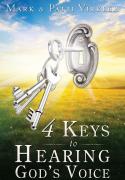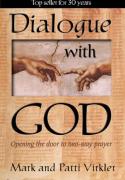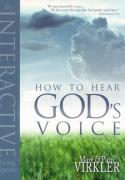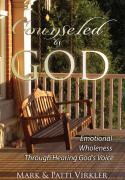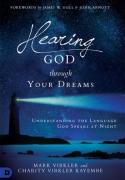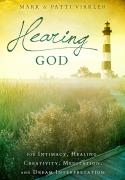Do you have a loved one who has died and you wonder if they will spend eternity in hell? Hell is a topic we tend to avoid, as the pictures painted of it are so terrible. Did you know there are three (or more) views of hell, all of which can be supported with Scripture, and all of which have been held throughout the Church’s 2000-year history?
Let’s take a brief look at each of the various perspectives to see what we can discover. I trust that as you explore them, you will ask the Holy Spirit to give you revelation. It is okay to disagree agreeably. Our love and honor is proof to the world that Jesus is real. Jesus prayed… “that they all may be one, as You, Father, are in Me, and I in You; that they also may be one in Us, that the world may believe that You sent Me” (John 17:21),
Since the titles of the three views of hell can present misleading inflammatory images in our mind, might I skip these for the time being and simply state the heart message of each view:
- Conscious eternal torment (Matt. 25:41)
- The wicked perish and those who accept Christ receive immortal life (Jn. 3:16;1 Tim. 6:16; 2 Tim. 1:10; 1 Cor. 15:53-54)
- All are ultimately drawn to God through Christ – every created thing worships (Rev. 5:13)
Interestingly, the Apostles' Creed does not promote any specific viewpoint on hell. After doing the Bible meditation you find in this series, I still have many unanswered questions and do not feel I have this whole topic locked down. I cling to the statement that has been on my desk for 40-plus years. "Don't bother to agree with me, I have already changed my mind." I do cling to the Bible, the Spirit, and the summary provided in the "Apostles Creed."
Introductory Overview
Christian History Institute has produced a free, downloadable 30-page booklet, The History of Hell providing an overview of the three views of hell. It contains actual statements from 43 historical Christian leaders, revealing that all three views (Traditional view, Conditionalism, and Ultimate Reconciliation) have been held by Church leaders through all of the last 2000 years. In addition, during the 400 years before Christ, the Jews also held each of the three views of hell (See Fudge video lecture).
Sixteen of the above 43 leaders listed did NOT hold to the traditional view of hell as conscious eternal torment. They had moved toward the second and third views listed above.
Gregory of Nyssa, the final editor of the Nicaean Creed (which came about at the conclusion of the First Ecumenical Council in 325 AD) believed that “Satan too will ultimately be restored to union with God.” Wow! Isn’t it amazing that Gregory could believe this and it NOT be a forbidden belief in the Nicaean Creed, nor did it even raise an issue of concern in the Church at 325 AD? All three views of hell existed peacefully side by side!
The above booklet concludes with a list of 57 books currently available debating the three positions on hell. Of these 57 books, many explore the traditional view, many explore conditionalism, many explore ultimate reconciliation, and several compare all three views. Each book puts forth Scriptural support. Wow!
For the first 500 years after Christ, the Church allowed believers the freedom to hold various beliefs concerning hell. This freedom ought to be extended today, as there are devout Christians who feel they have solid Biblical support for each of the three views of hell. Let’s show honor and realize that had God made hell crystal clear in the Bible, we would not have a 2000-year history of great Christian thinkers holding each of the various views.
I need to doubt a little of my infallibility. Can I choose to listen with an open heart as people present Scriptures which may support a position different from that which I hold? I ALWAYS ask God to show me the truth in what is being shared (rather than show me why they are wrong). This makes me a noble-minded Berean. “Now these were more noble-minded than those in Thessalonica, for they received the word with great eagerness, examining the Scriptures daily to see whether these things were so” (Acts 17:11).
The new truth Paul was preaching was that “Jesus IS the Christ” (Acts 17:1-5). The Thessalonians chose to prove Paul wrong, which would be easy to do. The Messiah was to set up a Kingdom, and instead Jesus was crucified. So yes, if I had a mind to prove Paul wrong, I can find Old Testament verses which to my satisfaction do so. However, when Jesus opened the Scriptures to the disciples on the Emmaus Road, the disciples said, “Were not our hearts burning within us while He was speaking to us on the road, while He was explaining the Scriptures to us?" (Lk. 24:27-32).
It is wise to research views which Biblically explore positions different from what one holds, asking, “Lord, show me the truth in what they are saying.” In doing so, we may well discover Scriptures which back up each of the three views of hell. Hmmm… So now confusion arises. What should my response be? The answer is, celebrate! We know that confusion is the first step toward revelation!
Now we ponder and pray, asking God to help us put all the pieces (verses) together into a harmonious symphony which reveals His plan, a plan that is consistent with His revealed character. It is possible for a person to believe that the heart of God is to stone one caught in adultery (Jn. 8:5). However, Jesus felt the heart of God was to release her (Jn. 8:11). So, our decisions are to be made as we listen to God’s voice (Jn. 5:19,20,30; 10:27). Jesus will open Scriptures to us just as He did for the disciples on the Emmaus Road (Lk. 24:27-32).
Honor the caution about receiving a stricter judgment if you are a teacher (Jas. 3:1). Perhaps we don’t need to know for sure. We can just have our best estimation concerning hell based on honoring the whole of Scripture as it relates to the coming age. We can freely admit that we see through a glass darkly, and ultimately all will become clear (1 Cor. 13:12). It is always wiser to express uncertainty, than to teach error and experience the judgment of God (Jas. 3:1).
Where to start? Here are key resources to begin with from those recommended below
- Hellbound? – 85-minute video documentary on the three views of hell
- The History of Hell – 30-page overview booklet of the three views of hell
- Lecture (streaming video with PowerPoint) – by Edward Fudge – The Fire That Consumes
- Then – other resources as your interest is piqued (Note: All videos are quick, easy and solid.)
Excellent Resources – The more complete listing
Documentaries
- Hellbound? – 85-minute documentary on various views of hell. You will be brought face-to-face with all three main views of hell, with powerful, thought-provoking discussions.
- Hell & Mr. Fudge – 95-minute biographical movie on an apologist for Conditionalism (Fudge taught himself Greek at age 6)
Edward Fudge – The Case for Conditionalism
- Lecture (streaming video with PowerPoint) – By Edward Fudge – on The Fire That Consumes
- PowerPoint (downloadable) which accompanied Edward Fudge’s lecture
- Book – The Fire That Consumes – Fudge – Covers every verse in the Bible that speaks of the end destination of the wicked, helping you make up your mind. Do they perish or are they tortured forever?
Web-links:
- Conditional Immortality – Website which is also available as a free 84-page downloadable PDF that clearly, concisely, and Biblically lays out the view of conditional immortality.
- Hope Beyond Hell – Examines ultimate reconciliation. To understand how ultimate reconciliation is different from universalism, see this article.
- Paradise Restored – David Chilton (Appendix B contains 60 pages by Josephus on the Fall of Jerusalem and how this fulfilled many of the prophecies we find in the New Testament. This may mean we do not need to project these prophecies into the future, as they were fulfilled in 70 AD when Jerusalem was completely destroyed by Rome.)
- Whatever Happened to Hell? The traditional view, listed last, as it is the most familiar view.
Research articles by Mark Virkler
- Three Views of Hell - An introduction to what these three views are
- Age, Eternity & Immortality Explored In-Depth – Demonstrates from Scripture that the word translated eternity can be as short as three days, and that immortality is extended ONLY to those accepting the gospel. The wicked are NOT immortal, so they perish.
- Research Hell, Hades, Lake of Fire, and Book of Life – Read every verse in the New Testament which contains these words so you know exactly what they say.
- Explore every verse from Young’s Literal Translation containing the Greek words aion/aionios – YLT never uses the word eternal, but instead “age-during”.
- Explore what Jesus said about the end of the unrighteous – Get it direct from the Master
- Sheol – The Old Testament Word for Hades
- 38 New Testament Verses on Fire


